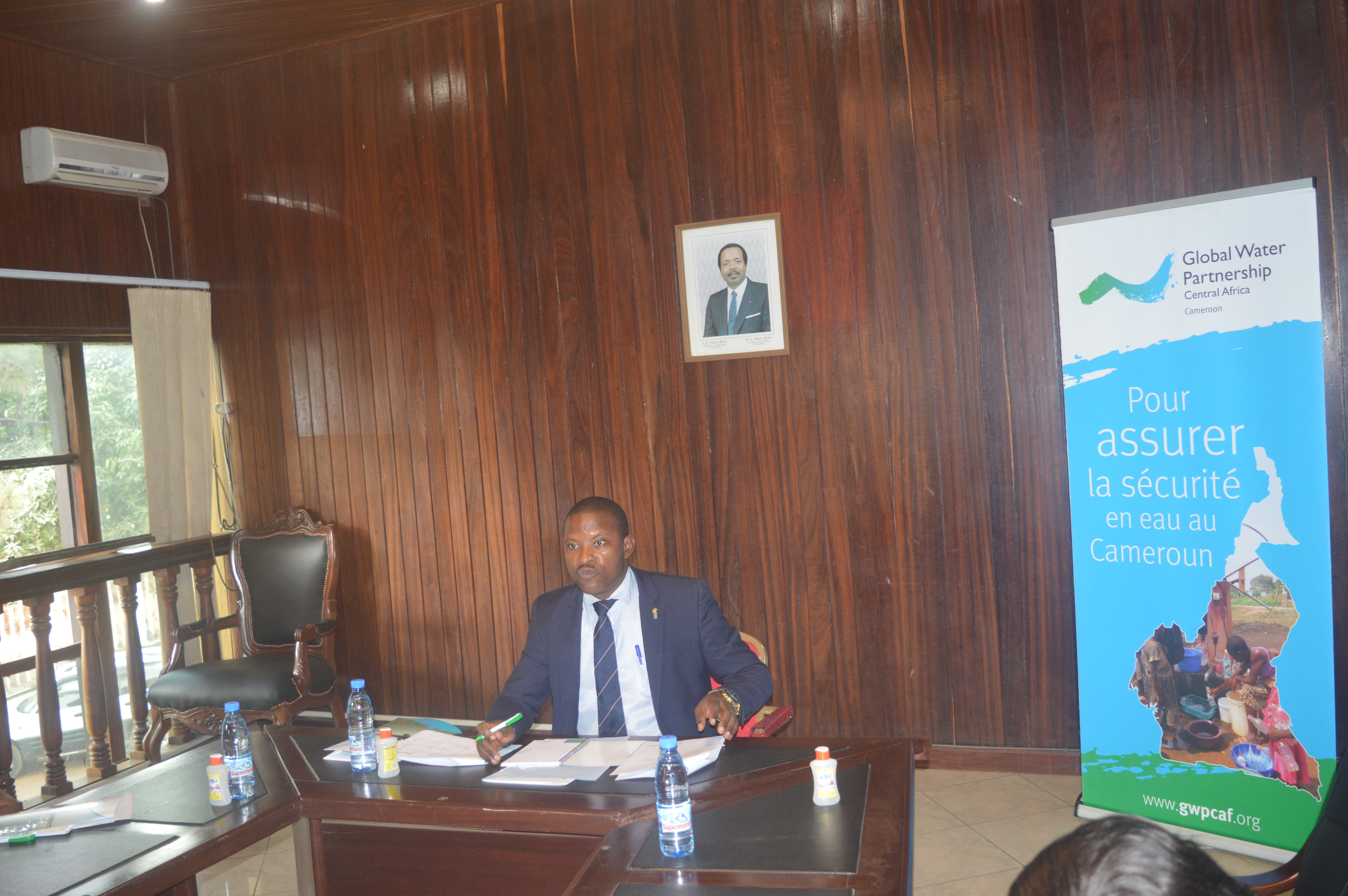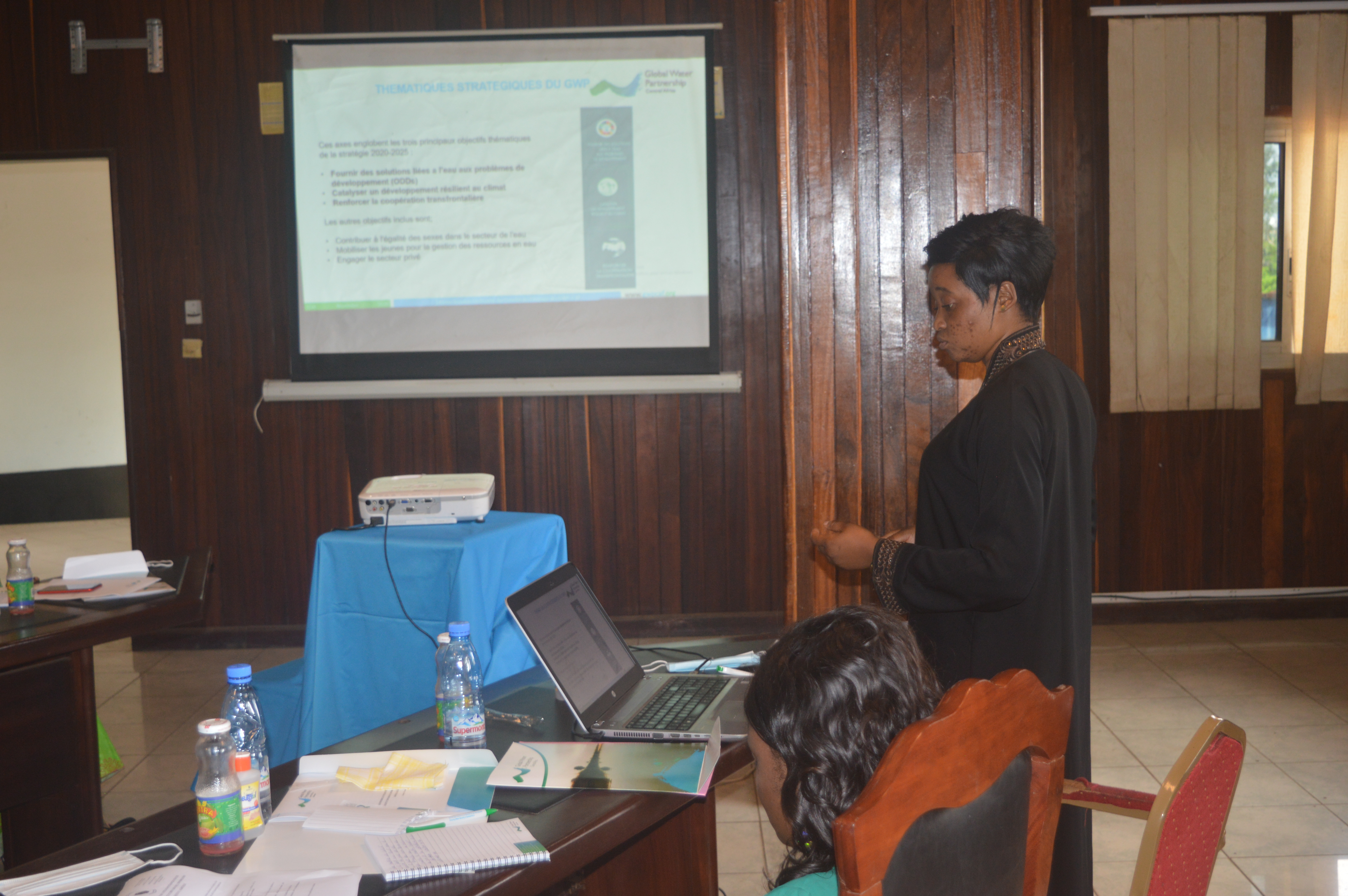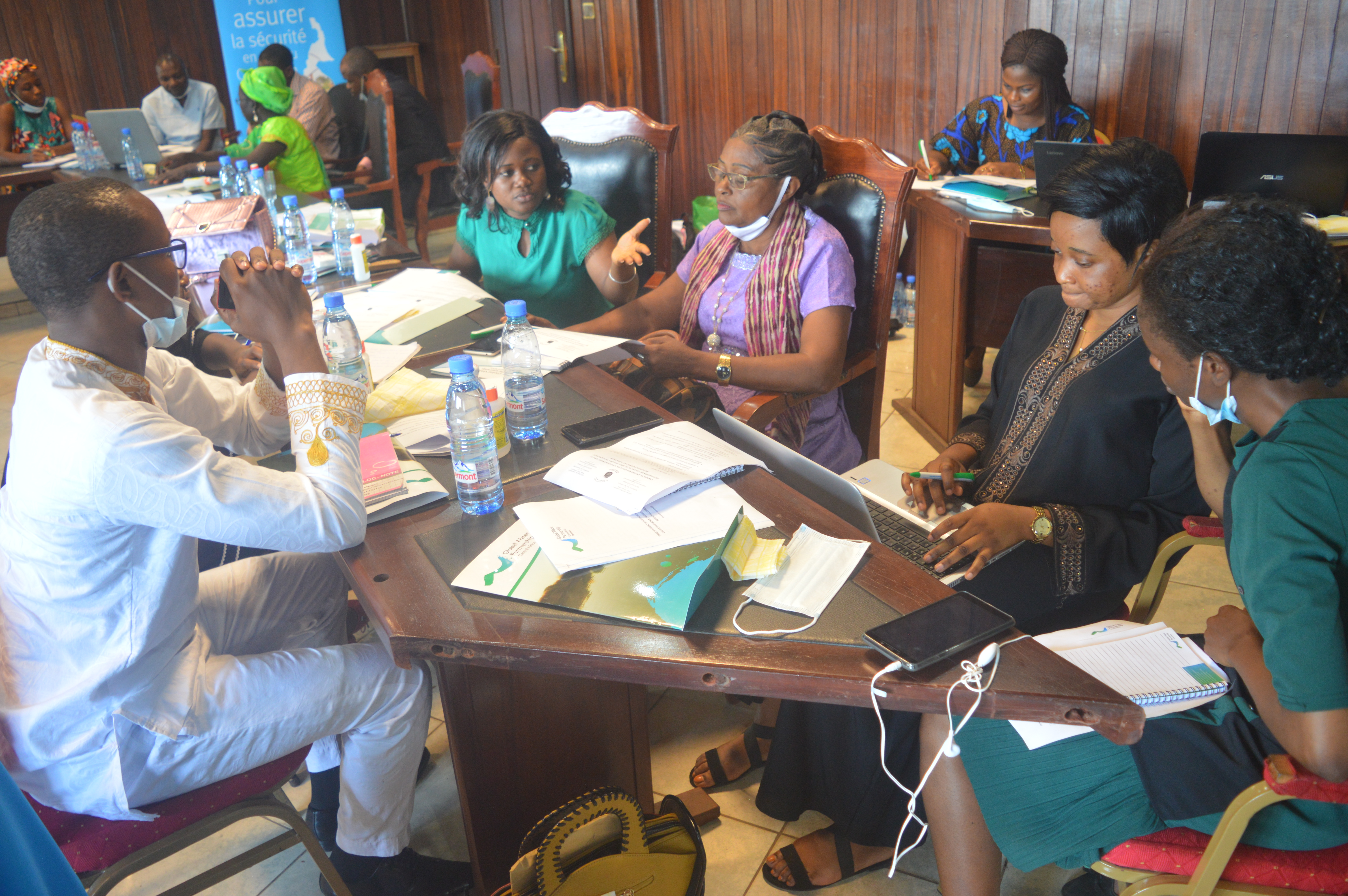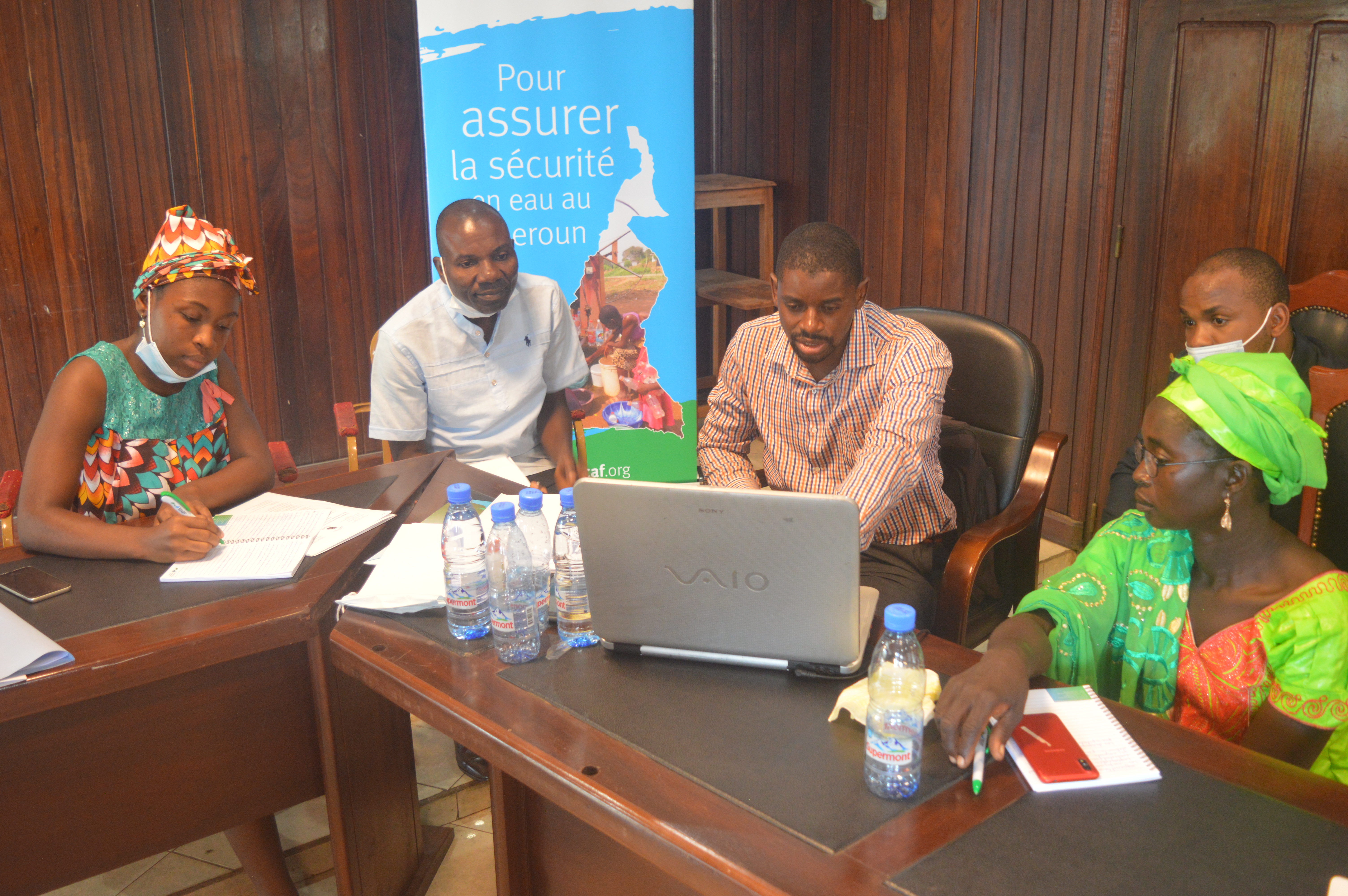This workshop takes place at a time when the challenges of climate change have constantly been on an increase, with a strong impact on developing countries. The impact of climate change, which is often more noticeable in the agricultural sector, manifests at several levels. The floods of 20 September 2012 in the North and Far North regions, clearly illustrate this impact.
The workshop had as objective to identify the mechanisms that will help in the collection of information directly from farms to evaluate the impacts of weather on agro-pastoral activities as well as better disseminate this information. In his opening speech, the Sub-Director of Meteorological Applications of the National Meteorological department (MINT), Mr. Gervais YONTCHANG reiterated that “weather reports are sent to users but we have no feedback on the use of the report. Therefore, GWP-Cmr is working with the MINT to find joint solutions to this problem”.
 Presentations were made on the Agrometeorological Report, the Climate Report and Mechanisms for collecting and disseminating climate information. The WACDEP-G Program Officer, Murielle Elouga presented GWP-CAf's mission to promote Integrated Water Resources Management (IWRM) and an overview of the WACDEP-G program with a focus on the gender and climate aspects of the program.
Presentations were made on the Agrometeorological Report, the Climate Report and Mechanisms for collecting and disseminating climate information. The WACDEP-G Program Officer, Murielle Elouga presented GWP-CAf's mission to promote Integrated Water Resources Management (IWRM) and an overview of the WACDEP-G program with a focus on the gender and climate aspects of the program.

The group discussion with the different actors from the civil society, community radio, Common Initiative Groups present at the workshop focused on the challenges in the collection and dissemination of agro-meteorological reports making it inaccessible to some beneficiaries. One participant, a rural farmer said, “It is quite technical and requires a certain expertise to interpret and adapt it to our agricultural needs”, she continued, “ our level of education and limited access to technology/internet does not make it any easier”. In addition, stakeholders noted that the design of the climate report is very technical and therefore difficult to understand and transmit by the broadcasters.

Nevertheless, the National Meteorological Department has installed nineteen automated weather stations out of twenty-five, a number which remains insufficient in view of the demand in the various regions of Cameroon. At the end of the workshop, the participants made some key recommendations. Amongst which are :
For the Ministry of Transport:
- Work with municipalities in areas marked by difficult access to agrometeorological report and climate information.
- Communicate weather and climate information for the Far North region to the Irrigation and Drainage Department so that it can be transformed into advice and disseminated by e-mail or WhatsApp to the various CIGs and agricultural associations
For the Ministry of Agriculture and rural development (MINADER):
- Update the agricultural calendar according to the information in the agrometeorological report collected from the Ministry of Transport
- Carry out two pilot initiatives in two communities located in the agro-ecological zones to test the three identified models for collecting information on the impacts of climate on agricultural activities (1- MINADER's Alternative Agricultural Extension System, 2- Use of weather focal points of the departmental MINT delegations, 3- Use of heads of agricultural posts).
Towards GWP-Cameroon:
- Strengthen consultation and dialogue between key stakeholders in charge of collecting, disseminating, and using agrometeorological information (MINADER, MINEPIA, MINT, Programme d'Amélioration de la Compétitivité des Exploitations Familiales Agropastorales (ACEFA), Civil Society organisations, CIGs...)
- To support the ministry of transport in conducting pilot initiatives within the communities located in agro-ecological zones to improve in situ (in farms) collection of agro-meteorological information
- Share knowledge and experiences on issues of access and use of climate information and early warning services by users in rural areas.

Background
The Ministry of Transport, through the Agrometeorology and Atmospheric Environment Service provides meteorological service to agro-industrial and agricultural users, evaluates the impact of weather on agricultural activities and elaborates agrometeorological reports and maps. However, the service still faces the difficulty of determining if the information provided is well exploited by users, especially women. Despite being the main agricultural producers, women are the most vulnerable to climate change in this sector and with a limited access to information and technology. This often due to their low level of education or the socio-cultural state in certain geographical areas of the country (Sahel).